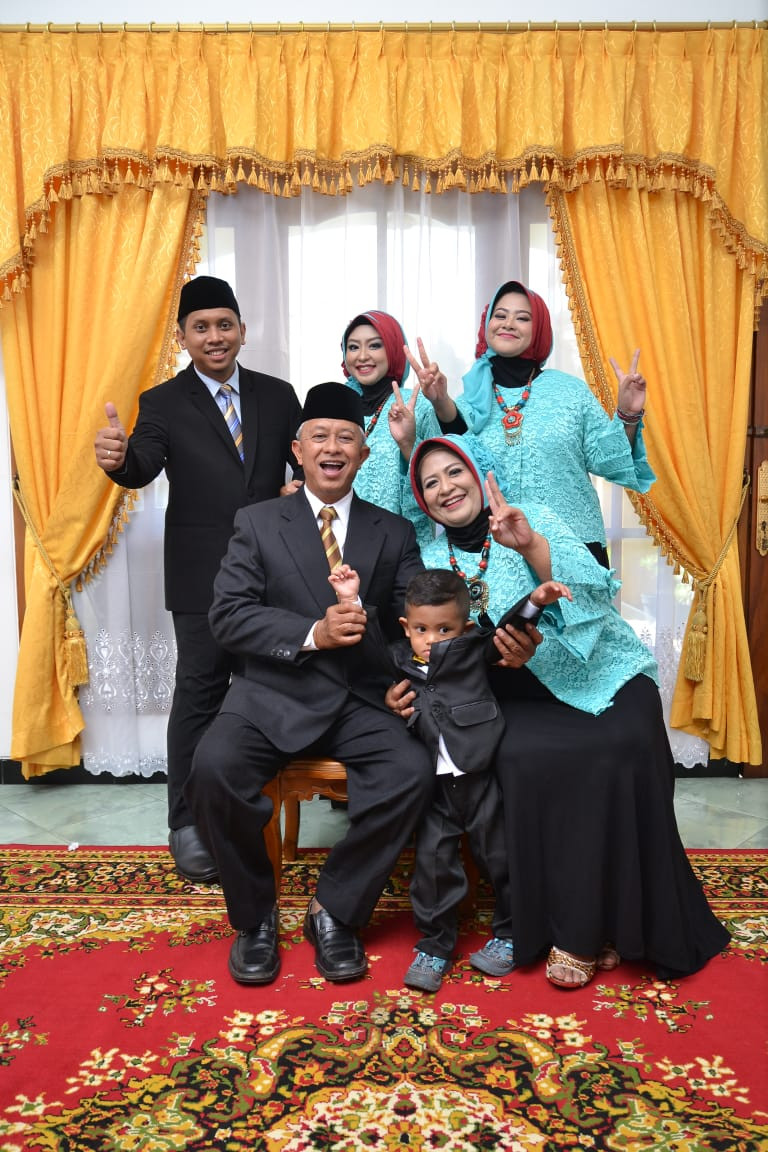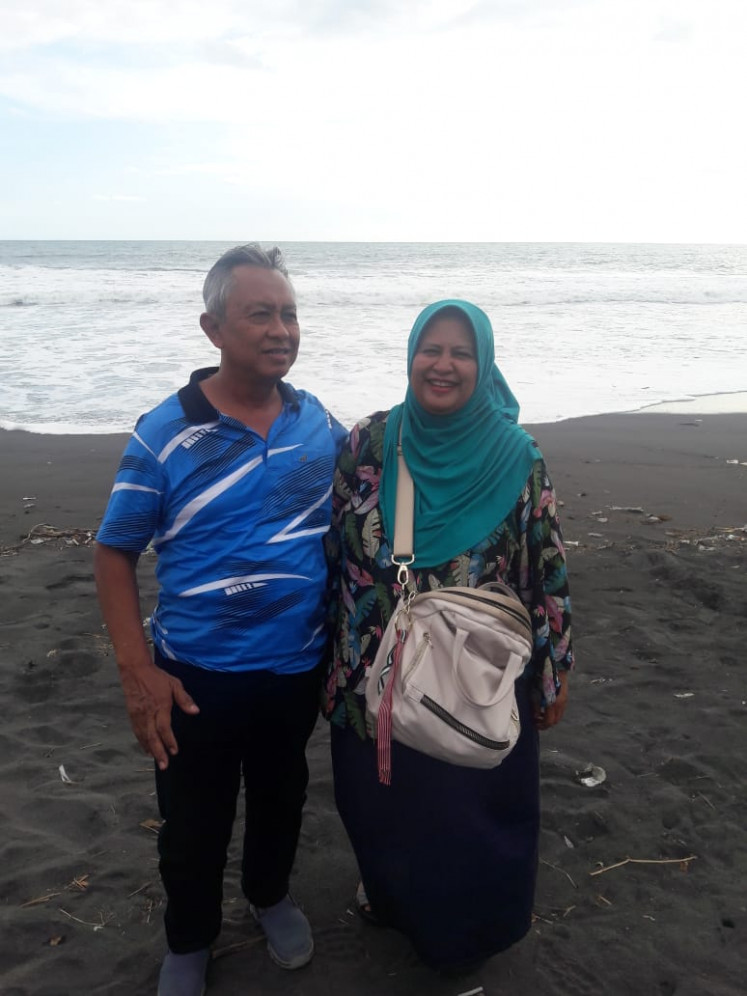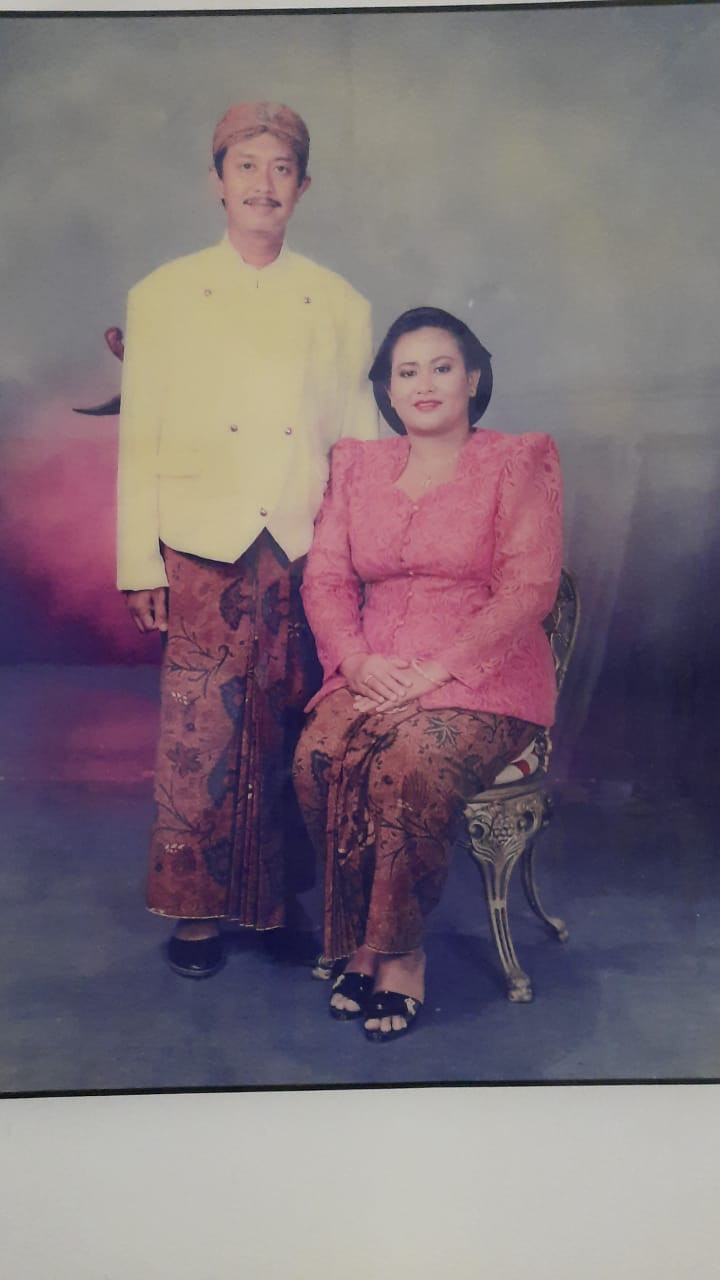Popular Reads
Top Results
Can't find what you're looking for?
View all search resultsPopular Reads
Top Results
Can't find what you're looking for?
View all search resultsPeople not numbers: Sisters remember loving parents as more than COVID-19 victims
The pain of losing not only one but both parents in a short span of time is something no child should go through. Putri Dwi Artina Endhuet, 24, and her older sister, Sendi Eka Nilasari, 30, never imagined it would happen to them.
Change text size
Gift Premium Articles
to Anyone
T
he sheer number of COVID-19 deaths has made it easy to forget that behind the statistics lie stories lived by individuals who could and should have continued on. In “People, not numbers”, The Jakarta Post remembers their lives through the eyes of those who knew them best.
The pain of losing not only one but both parents in a short span of time is something that no child should go through. Putri Dwi Artina Endhuet, 24, and her older sister, Sendi Eka Nilasari, 30, never imagined this would happen to them.
The sisters lost their parents, Djoni Yono Sewoyo and Wiwik Sri Sunariyati, to COVID-19 complications on July 4 and July 8 at the age of 64 and 55, respectively.
Putri, who still hasn’t recovered from COVID-19, fought against the disease alongside her parents. She knew exactly that the odds were against them, with medicine being retailed at unreasonably high prices and hospitals overloaded due to the surge of COVID-19 cases in Indonesia.
Opposites attract
Djoni was born in Madiun, while Wiwik was born in Surabaya, East Java. They met through a mutual friend.
“He [the man who introduced them] was a friend of my mother who was also fond of her [romantically], but my father fought to the last minute for her. Initially, my mom was not attracted to my father,” Sendi told The Jakarta Post, recounting her parents’ love story.
The joker and the businesswoman: Djoni Yono Sewoyo (left) and his wife Wiwik Sri Sunariyati during a trip to Jogjakarta in 2018. (Personal collection/Courtesy of Sendi Eka Nilasari)Both Djoni and Wiwik were remembered as parents who loved each other dearly. Like peas in a pod, they were in sync and inseparable. With their children, they loved to share jokes.
"They complement each other, my dad is a person who loves to joke, while my mom is a very disciplined person," said Sendi, recalling that both of them also shared the hobby of gardening and taking care of pets.
As Putri and Sendi keep the fondest memories of their parents, they said that they promise to lead a good life as a tribute to their parents. Putri was still in self-isolation when the Post spoke with her via Zoom.
“We hope our mom and dad are now at peace together because my mom once said that they don’t want to be separated,” Sendi said.
Sharing, catering and cooking
Of the many lessons that Putri and Sendi had learned from the lives of their parents, the greatest was to share with others who are in need.
“My mom and my dad always reminded me to share with [the rest of] our family and the less fortunate around us,” Sendi said.
Wiwik started a catering business in 1998 and chose to take care of her children while pursuing her passion for cooking. Djoni worked as a civil servant (PNS) who was always ready to help his wife’s venture, marketing it to anyone who would listen.
Most of their first customers were from Djoni’s office or that of local government services in Surabaya.
The sisters shared that even though they were not a well-to-do family at the time, their mother always remembered to share.
“Our mom cared about children who wanted to go to school but could not afford it. Our parents used to recruited teenagers living around the housing area who were underprivileged to work as employees, so they could use their salary for their education. Our mom also recruited mothers around the housing area who could not get decent work,” Sendi said.
Caring couple: Djoni Yono Sewoyo (left) and Wiwik Sri Sunariyati were remembered as caring parents and grandparents to those who knew them. (Personal collection/Courtesy of Sendi Eka Nilasari)The sisters reminisced about the many unforgettable moments the family experienced while running the catering business. During Lebaran, Sendi and Putri also had to help with cake orders.
"We, as her children, were told to work. We were treated the same as any other employees and we got paid for our work," Sendi said.
"I realize now and regret why I didn't learn more about cooking from my mom."
More than a number
Their father is remembered as a caring figure. The sisters hope their parents would be remembered as people who cared about others, not merely as another case of COVID-19 deaths.
“We would love for our mom and dad to be remembered as a pair of human beings who were sincere when helping others. They were good people who adhered to health protocols,” Sendi told the Post.
"Dad could not have been more generous as a person. He could not stand when someone is in trouble or faced with difficulties. For example, when I could not find my way in Surabaya, my dad would pick me up with a motorbike," Putri recalled.
Sendi added about Djoni, "He liked loose jokes, his demeanor was relaxed and he was passionate about food."
She remembered that one time, her father drove from Surabaya to Madiun to satisfy his craving for pecel (traditional Javanese salad with peanut sauce).
Djoni’s sister-in-law, Ratna Tri Wahjuni, 50, also remembered him as an imam for his family.
“He was a funny guy. During the last Ramadan, for some reason, he broke his fast on three different occasions. His reason was simply losing his temper. His temper got the best of him, and he realized it. So, he stopped fasting. He was a good imam for his family and will be dearly missed.”













